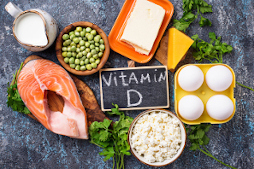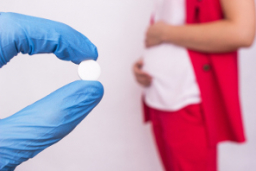Eat calcium-rich food during pregnancy
A low intake of this mineral affects the foetal development
About 30 g of calcium are needed throughout pregnancy, especially in the last trimester, for the proper development of the foetus's bones. You need to know that foetal complications such as low bone mineralisation, delayed intrauterine growth and low birth weight are linked to a low calcium intake during pregnancy.
How much calcium do you need throughout your pregnancy?
Calcium is the most abundant mineral in the body. This nutrient represents 4% of the total mineral mass and 25% of the total weight. 99% of calcium is in the bone system.
Calcium absorption increases during pregnancy to ensure calcium supply to the foetus, while maintaining the levels in the maternal plasma and the bones. Throughout pregnancy, a total of 25-30 g of calcium is transferred from the mother to the foetus through the placenta. 90% of this contribution takes place in the third trimester of pregnancy.
If you are pregnant with twins: you need more calcium
The WHO recommends a calcium intake of 1,200 mg/day for pregnant women between 19 and 50 years of age. If you are pregnant with twins, you should double that amount: 1,500 mg/day during the first trimester and 2,500 mg/day during the second and third trimester.
Maternal calcium reaches the baby through the placenta
This amount of calcium is very small compared to the total calcium contained in the mother's body, and can easily be moved from the mother's deposits into the blood to pass to the foetus through the placenta when needed. Low calcium intake has been associated with foetal disorders such as low bone mineralisation, delayed intrauterine growth and low birth weight.
Calcium in healthy pregnant women
In general, healthy women, with an adequate calcium intake do not need to take calcium supplements, as no benefit has been demonstrated in perinatal results. However, in pregnant women with insufficient calcium intake, the administration of these supplements appears to reduce the risk of hypertension in pregnancy.
Pregnant women with a low-calcium diet
Likewise, some studies also indicate that calcium intake in pregnant women with a risk factor for pre-eclampsia can contribute to reduce the development of this complication by 35%. That’s why the WHO recommends calcium supplementation of between 1,500 and 2,000 mcg, with the total dose divided into three doses, from week 20 to the end of the pregnancy, for pregnant women with low dietary calcium intake and particularly for women who have a risk of pre-eclampsia.
Increase your calcium reserves
- A piece of cheese, a yogurt or a glass or cow’s milk contains about 300 mg of calcium each.
- Therefore, in order to reach the recommended doses in the second and third trimesters, you should eat eight servings of these calcium-rich foods a day.
- Apart from dairy products, other products such as legumes, vegetables and fruit are rich in calcium. We advise you to read the list of foods with calcium below.
- Remember that pregnant women’s polyvitamin complexes do not contain calcium.
List of calcium-rich foods for pregnant women
Here are the main foods rich in calcium and their equivalents. Take note of this list of foods to include them into your weekly menus.
|
FOODS |
EQUIVALENCE IN MICROGRAMMES (mcg) |
|
DAIRY PRODUCTS |
|
|
Ewe’s milk |
1 cup: 470 |
|
Goat’s milk |
1 cup: 325 |
|
Cow’s milk |
1 cup: 300 |
|
Yogurt |
1 cup: 400 |
|
Cottage cheese |
½ cup 125 |
|
Greek yogurt
|
½ cup: 120 |
|
Cheddar |
1 cup: 200 |
|
Parmesan |
1 spoonful: 45
|
|
Ice-cream
|
½ cup: 84 |
|
ALTERNATIVE DAIRY PRODUCTS |
|
|
Calcium-fortified soy milk |
1 cup: 200 to 400 mcg
|
|
Calcium-fortified almond milk |
1 cup: 200 to 500 mcg |
|
LEGUMES |
|
|
Cooked soybeans |
½ cup: 50 |
|
Cooked chickpeas |
½ cup: 40 |
|
Cooked pinto beans |
½ cup: 40 |
|
Tofu |
120 g: 90-170 |
|
White beans |
½ cup: 90 |
|
VEGETABLES |
|
|
Raw rocket salad |
1 cup: 30 |
|
Raw broccoli |
1 cup: 45 |
|
Cooked broccoli |
½ cup: 30 |
|
Cooked chard |
½ cup: 50 |
|
Raw kale or leaf cabbage |
1 cup: 25 |
|
Cooked kale |
½ cup 50 |
|
Raw spinach |
1 cup 30 |
|
Cooked spinach |
½ cup 120 |
|
FRUIT |
|
|
Two fresh figs |
35 |
|
Dried figs |
½ cup: 120 |
|
1 kiwi |
30 |
|
Orange juice |
120 ml: 15 |
|
Almonds |
1 cup: 80 |
|
Brazil nuts |
1 cup: 45 |
|
Chia seeds |
1 cup: 180 |
|
Sesame seeds |
1 cup: 280 |
|
|
|












